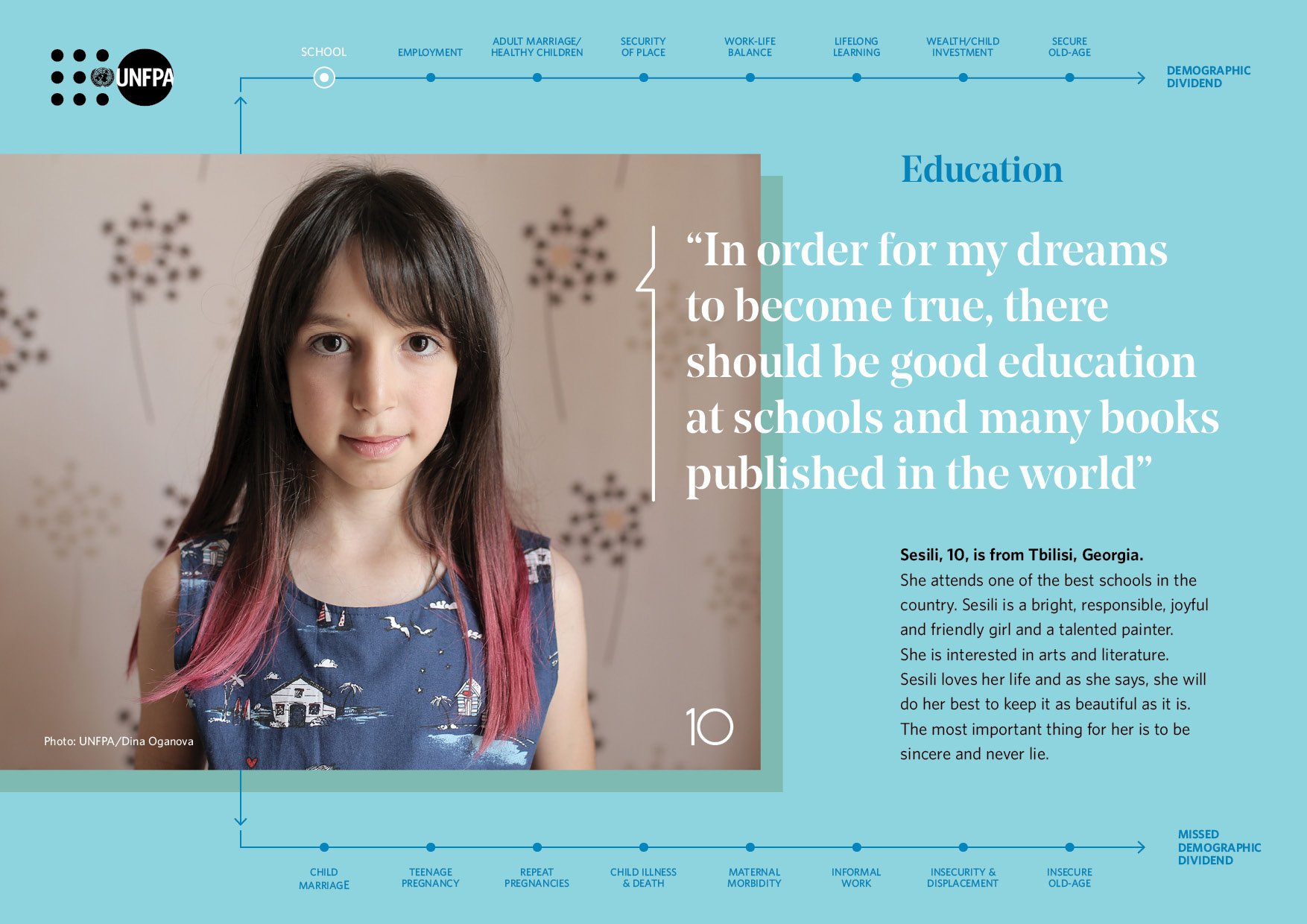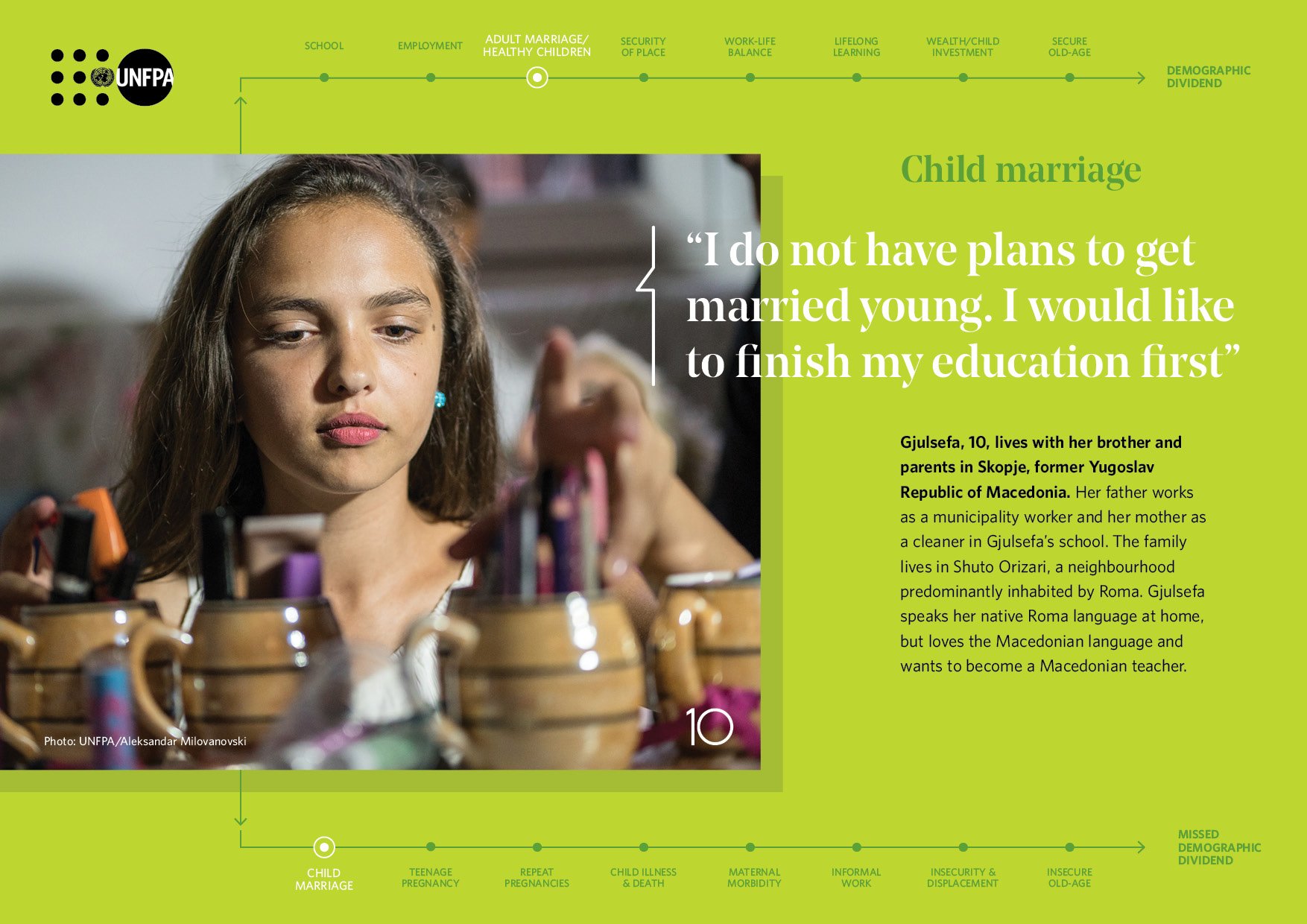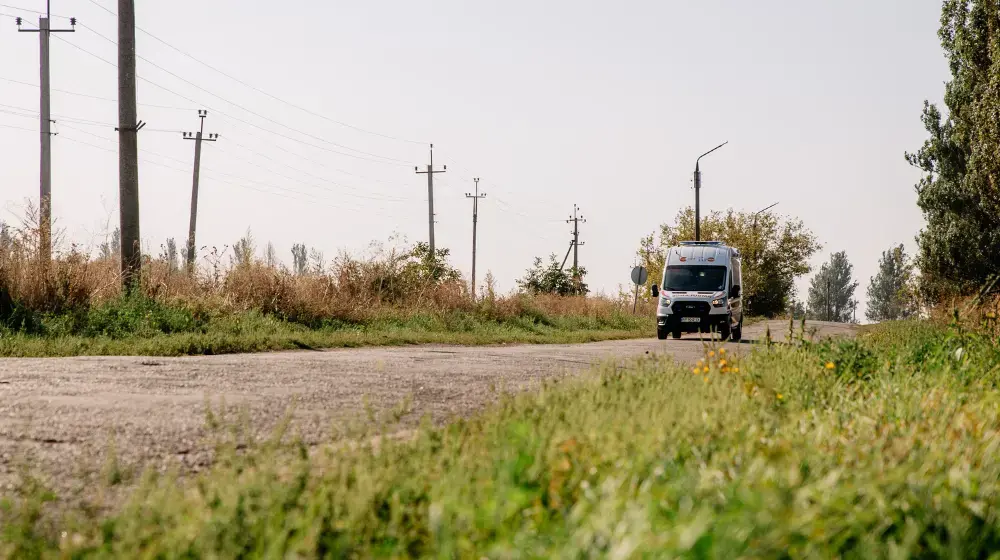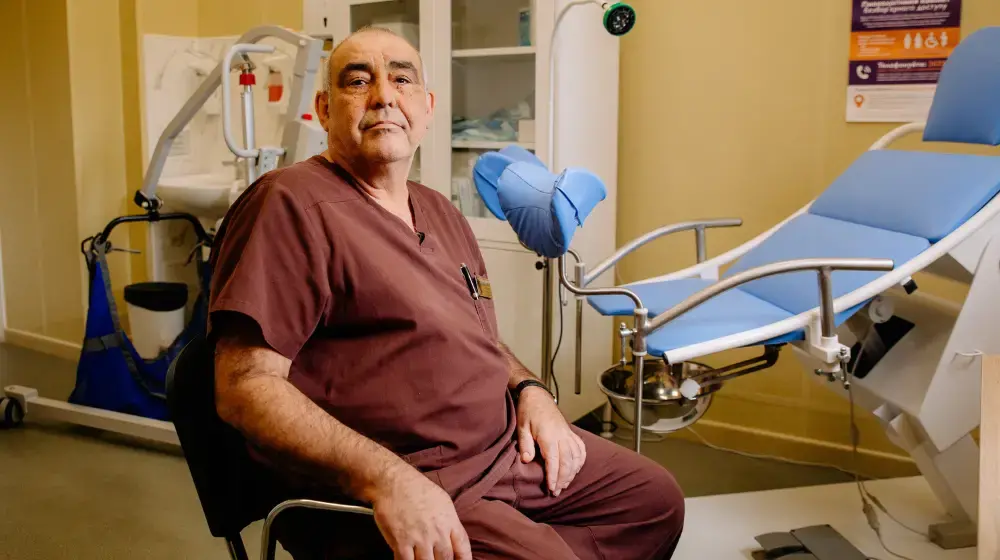10: How our common future in Eastern Europe and Central Asia depends on a girl at this pivotal age
Regional portraits and facts supplementing UNFPA’s State of World Population 2016
|
Education |
Child marriage |
Teenage pregnancy |
Employment |
|
Work-life balance |
Security of place |
Wealth/child investment |
Gender-biased sex selection |
When a girl reaches age 10 in our region, her world is about to change.
As she embarks on her journey through adolescence and on to adulthood, the coming years will be crucial for determining in which direction her life will go.
She could flourish, gradually building her skills and enhancing her horizons, nurtured by an enabling and empowering environment in her family and community that encourages her to start making choices and shape her own future.
But her dreams may also be shattered as social and cultural norms and discriminatory laws and practices hold her back.
At age 10, a girl in our region is at a crossroads.
Which path she takes does not only matter for her own life. It matters for the lives of all of us.
Because we all win when a girl – a hundred girls, a generation of girls – can fulfill their potential. Human capital strengthens. Economies grow. Wealth rises.
It is in our hands to help make this happen.
These materials supplement the 2016 edition of UNFPA’s State of World Population report, with a focus on Eastern Europe and Central Asia.
They tell the stories of eight 10-year-old girls from across this region, and give a short overview of some of the key challenges and opportunities they and their peers are facing. And they put these in the broader context of what investments are needed to reap the demographic dividend in this region.
At the dawn of the Agenda 2030 era, as we have embarked on implementing the Sustainable Development Goals, our success will in many ways depend on whether we are able to unleash the potential of this generation of girls.
The dreams and aspirations of the girls featured in this year’s State of World Population report, and this regional supplement, serve as a powerful call to action for governments, civil society and the international community, for teachers, health workers and parents, to create the conditions necessary for girls to thrive in this region.












